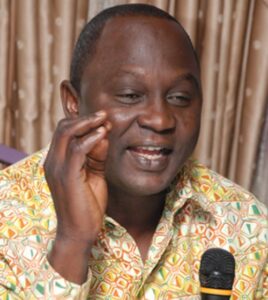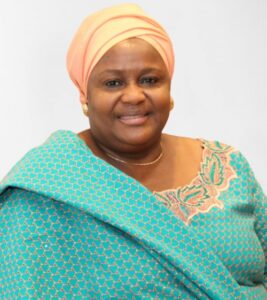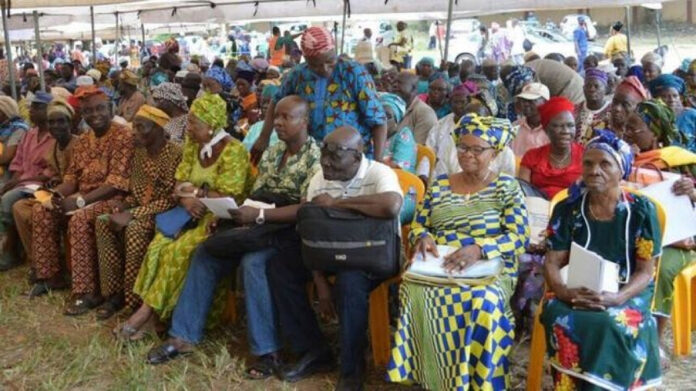Exclusive: Employers’ low remittance on CPS threatens N13.61tr pension’s assets growth
- As N154.6m fine awaits defaulters for no remittance.
- Only five states out of 36 are under CPS – investigation reveals
Worried by the low compliance of employers in both private and public sectors to the Contributory Pension Scheme (CPS) Act, due to their refusal to remit monthly deductions into workers’ Retirement Savings Accounts (RSAs), Nigerian workers have expressed fear that bleak future lies ahead as benefits expected after retirement might become a mirage.
 Seventeen years after its inception, (the legislative arm of government enacted the Pension Reform Act 2004, which was amended in 2014,) yet employers in both the private and public sectors are frustrating government’s effort to ensure better retirement future for workers in the labour market.
Seventeen years after its inception, (the legislative arm of government enacted the Pension Reform Act 2004, which was amended in 2014,) yet employers in both the private and public sectors are frustrating government’s effort to ensure better retirement future for workers in the labour market.
In the second quarter report for 2021, released by the National Pension Commission (PenCom) on their website, the agency pointed out that about 31 employers in the private sector have been mandated to pay a total fine of N154.6 million, for failure to remit their contributing pension scheme deducted from their workers’ salaries to the appropriate Pension Fund Administrators (PFA) in the industry.
The figure stands for part of the total N398.006 million recovered from their workers, according to the report, a total of N243.396 million representing the principal contributions was also recovered from the defaulters.The report also explained that 19 other defaulting employers had been recommended for appropriate legal action.
While the defaulters were penalised over the infractions, the commission received 10,700 applications from private sector organisations for Pension Clearance Certificates (PCCs) to further qualify them for Federal Government contracts.
According to the report, “out of this number, PCCs were issued to 10,417 organisations, while 283 applications were in the approval process as at June 30, 2021.
“The records showed that 10,417 organisations had remitted N38.371 billion into the Retirement Savings Accounts (RSAs) of their employees totaling 127,483.”
On refund of pension contributions to military personnel and employees of state security agencies, the report noted that during the quarter under review, the commission granted approval for the refund of N6.708 million to 57 personnel of the military and other security agencies, who were exempted from the Contributory Pension Scheme (CPS).
An update on the Nigeria Social Insurance Trust Fund (NSITF), also revealed that the commission received applications for transfer of NSITF contributions on behalf of 332 NSITF contributors.
“Approval was granted to transfer N17.026 million to the Retirement Savings Accounts (RSAs) of 298 members. On a similar note, the commission approved monthly pensions of N62.327 to 3,629 NSITF pensioners,” the report noted.
The data obtained by this medium from PenCom, revealed that as at the 2nd quarter of 2021, only 740,000 employers across all the sectors of the economy had remitted the sum of N19.70 billion.
Hence, this left millions of employers, especially, in the Micro, Small, and Medium Enterprise (MSME)’s sector with no pension plan for their workers or subscribed but are not funding the Retirement Savings Accounts (RSAs) for them.
This has slowed the growth of the pension fund assets. Despite an attempt by the Federal Government through its agency, (PenCom) to ensure strict compliance with the (CPS) in the country, Timeless Magazine gathered that private-sector workers still owed N8.89 trillion, which is 70 per cent of the N12.78 trillion of the pension fund assets.
While the commission is trying to ensure the full implementation of the various provisions of the Pension Reform Act 2014 (PRA 2014) through strategic initiatives such as the enhanced pursuit of the resolution of outstanding pension liabilities of the Federal Government under the (CPS), with only 90.91 million workers in the nation’s informal sector, just over 70,000 of them have embraced the Micro Pension Plan (MPP), leaving 90.21 million out.
Survey by Timeless Magazine, on the level of implementation of the CPS by states as of June 2021′, showed that 25 states had enacted laws to join the scheme.
The states include Lagos, Osun, Kaduna, Delta, Ekiti, Ondo, Edo, Benue, Kebbi, Niger, Rivers, Ogun, Bayelsa, Kogi, Anambra, Abia, Taraba and Imo.
Others are Sokoto, Adamawa, Ebonyi, Nasarawa, Enugu, Oyo and the Federal Capital Territory.
The report, however, showed that only five states – Lagos, Osun, Kaduna, Delta and the FCT – were paying pensions to retirees under the CPS and funding the accrued rights (benefits under the old pension scheme that the retirees are also entitled to).
 Despite enacting their CPS laws, Anambra, Abia, Taraba, Imo, Sokoto, Adamawa, Ebonyi, Nasarawa, Enugu and Oyo states are yet to establish pension bureaus to commence the scheme.
Despite enacting their CPS laws, Anambra, Abia, Taraba, Imo, Sokoto, Adamawa, Ebonyi, Nasarawa, Enugu and Oyo states are yet to establish pension bureaus to commence the scheme.
According to PenCom, seven states are at the bill formation stage to enable them to migrate from the old scheme to the CPS. They are Kwara, Plateau, Cross River, Borno, Akwa Ibom, Bauchi and Katsina.
Five states have, however, opted for other pension schemes. They are Jigawa, Kano, Yobe, Gombe and Zamfara.
Reacting to the development, the former Head, Corporate Communications, PenCom, Peter Aghahowa, noted that the states had different peculiarities.
He said: “The process of enacting the law is the first thing; then, you will put the structures in place; for example, you have to put a pension bureau in place and you have to train people to understand how the CPS works. Then, you start getting the employees of the states to register with the PFAs before remittances will start.
“But apart from that, the most important thing is that the government must have the will to implement, to deduct and to remit pensions.”
A World Bank Group study recently found that a strikingly large percentage of workers and firms operated outside the line of sight of governments in emerging markets and developing economies (EMDEs) – a challenge that is likely to hold back the recovery in these economies unless governments adopts a comprehensive set of policies to address the drawbacks of the informal sector.
The report stated that 80.4 per cent of Nigeria’s employments were in the informal sector, 10 per cent in the formal sector, and 9.6 per cent in households. A total of 78.8 per cent of men were in the informal sector; 12.9 per cent of men were in formal sector and 8.3 per cent in households.
The report said 82.1 per cent of women in the country were in the informal sector; 6.9 per cent in formal sector while 11 per cent were in households.
 The informal sector includes; casual day laborers, domestic workers, industrial outworkers, undeclared workers, and part-time or temporary workers without secure contracts, worker benefits, or social protection. “Although 26 states and the FCT have enacted Pension Laws, only about 8 states have fully implemented the Contributory Pension Scheme, and if no measures are put in place to ensure that states adhere to the Contributory Pension Scheme in line with the provisions of the Pension Reform Act, 2014, the objective of the Act, which is to establish a pension system that is sustainable and capable of providing a stable and predictable source of retirement benefits for employees across the country, may be defeated.”
The informal sector includes; casual day laborers, domestic workers, industrial outworkers, undeclared workers, and part-time or temporary workers without secure contracts, worker benefits, or social protection. “Although 26 states and the FCT have enacted Pension Laws, only about 8 states have fully implemented the Contributory Pension Scheme, and if no measures are put in place to ensure that states adhere to the Contributory Pension Scheme in line with the provisions of the Pension Reform Act, 2014, the objective of the Act, which is to establish a pension system that is sustainable and capable of providing a stable and predictable source of retirement benefits for employees across the country, may be defeated.”
Accordingly, the commission had recorded a significant milestone with the approval granted by President Muhammadu Buhari, on the payment of some outstanding pension liabilities of the Federal Government under the CPS.
The Presidential approval covered the payment of outstanding accrued pension rights for verified and enrolled retirees of treasury-funded MDAs that are yet to be paid their retirement benefits; payment of the backlog of death benefits claims due to beneficiaries of deceased employees of treasury funded MDAs and payment of 2.5 per cent differential in the rate of employer pension contribution for FGN retirees and employees, which resulted from increase in the minimum pension contribution for employers from 7.5 per cent to 10 per cent, in line with Section 4(1) of the Pension Reform Act (PRA) 2014.
Speaking on the development in one the industry’s recent forum, the Director-General, National Pension Commission (PenCom), Mrs. Aisha Dahir-Umar, said, the growth in the pension fund assets under the new pension scheme, is an indication of prudent and sincere management of the pension fund by the pension operators and the regulator.
According to her, “the number of registered contributors under the CPS has grown over 9.38 million while pension fund assets have accumulated to N12.78 trillion. The maintenance of a consistent growth trajectory continues to justify the commission’s overriding investment philosophy of ensuring the safety of pension fund assets.”
Dahir-Umar added that the regulator will continue to dish out policies that will enhance the growth of the pension assets as well as investment options that will ensure that the assets are not depleted.




























